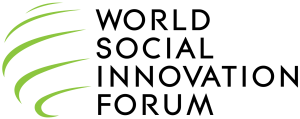World Social Innovation Forum (WSIF), Startup World Cup, and Startup Hub Nepal jointly organized a webinar titled “Funding Social Innovation: Fostering a Green & Resilient Economy Through Startups” to provide the startup ecosystem of Nepal with guidelines on establishing impact and compassionate capitalism. The webinar was held on May 16, 2021 bringing together more than one hundred startups from Nepal and around the world, global investors, social changemakers, and top executives of global prominent companies.
WSIF aims to play a leading role in achieving the Sustainable Development Goals (SDGs). Currently, WSIF will focus on the following six SDGs: Good health and well-being; Quality education; Gender equality; Decent work and economic growth; Industry, innovation, and infrastructure; and Sustainable cities and communities.
Going forward, WSIF, Startup World Cup and Startup Hub Nepal will work together to connect Nepali startups with global startups, social innovation networks and investors. These platforms will also help the government of Nepal formulate frameworks for implementing impact and compassionate capitalism through the startup ecosystem. Nepali startups in Health-tech, EdTech and other impact-creating domains will get support from these platforms to generate employment, entrepreneurship, and solve ESG challenges.
Shameem Ahsan, Chairman, World Social Innovation Forum, and General Partner, Pegasus Tech Ventures said, “We need to collectively come up with initiatives and action plans to heal the world, and one such solution is within our grasp, fueled by impact investment. It allows us to address the disparity in society, and degradation of our planet and lead us to a sustainable new world. We strongly believe that in next 15 years, majority organizations in the world will initiate impact-driven businesses and majority of world population will consume products and services from impact-driven companies. It will also help us become less susceptible to pandemics like COVID-19 and build a resilient economy.”
Jenni Risku, Board Member, World Social Innovation Forum, and Founder, Women In Tech said, “It is imperative to give voice to the women struggling with starting their own ventures, and it varies between women of different countries. Because of varying cultures and roles, asking women of different countries what it is they need to help smoothen their journey to start and sustain a startup is important, and must be backed up by government policies.”
James Tan, Board Member, World Social Innovation Forum, and Chairman, Action Community for Entrepreneurship (The national voice for Singapore startup ecosystem) said, “The startup ecosystem rests on five pillars: the government and the public sector, startups, corporations, risk capital, and higher learning. The government alone cannot support the startup ecosystem, it requires the joint effort of all five pillars. However, the government interference should be minimal, because the public sectors know little about the functioning of the startup ecosystem. The private sector is better at understanding and navigating the startup ecosystem.”
Dr. Shambhu Pokharel, Founder, Startup Hub Nepal said, “To create a long-lasting and real social impact, we all need to actively play a major role in addressing the challenges faced by our aspiring entrepreneurs which will help to ignite a robust startup ecosystem.”
Shalabh Mittal, CEO, School for Social Entrepreneurs India said, “The concept of impact capital should be changed to compassionate capitalism, where pivotal roles are played by the entrepreneurs, learning and incubation, and investors, laced with government service. Out of all these, the entrepreneur plays the most important role, as the sole bringer of the idea that can create impact. Furthermore, more efforts must be taken to make spaces for women to be a part of all platforms and give them an equal footing when launching startups and attaining resources.”
Deependra Bajracharya, Corporate Account Orchestration, Microsoft said, “Microsoft has been involved in start-up culture for years. If I look at the current situation of the startup ecosystem and culture, our focus is on sustainability, using sustainable and eco-friendly practices. We aim to restore more land than we use, reduce our water usage, and use resources efficiently to reduce waste by recycling more by the year 2030.”
